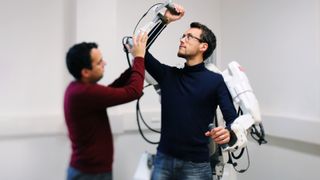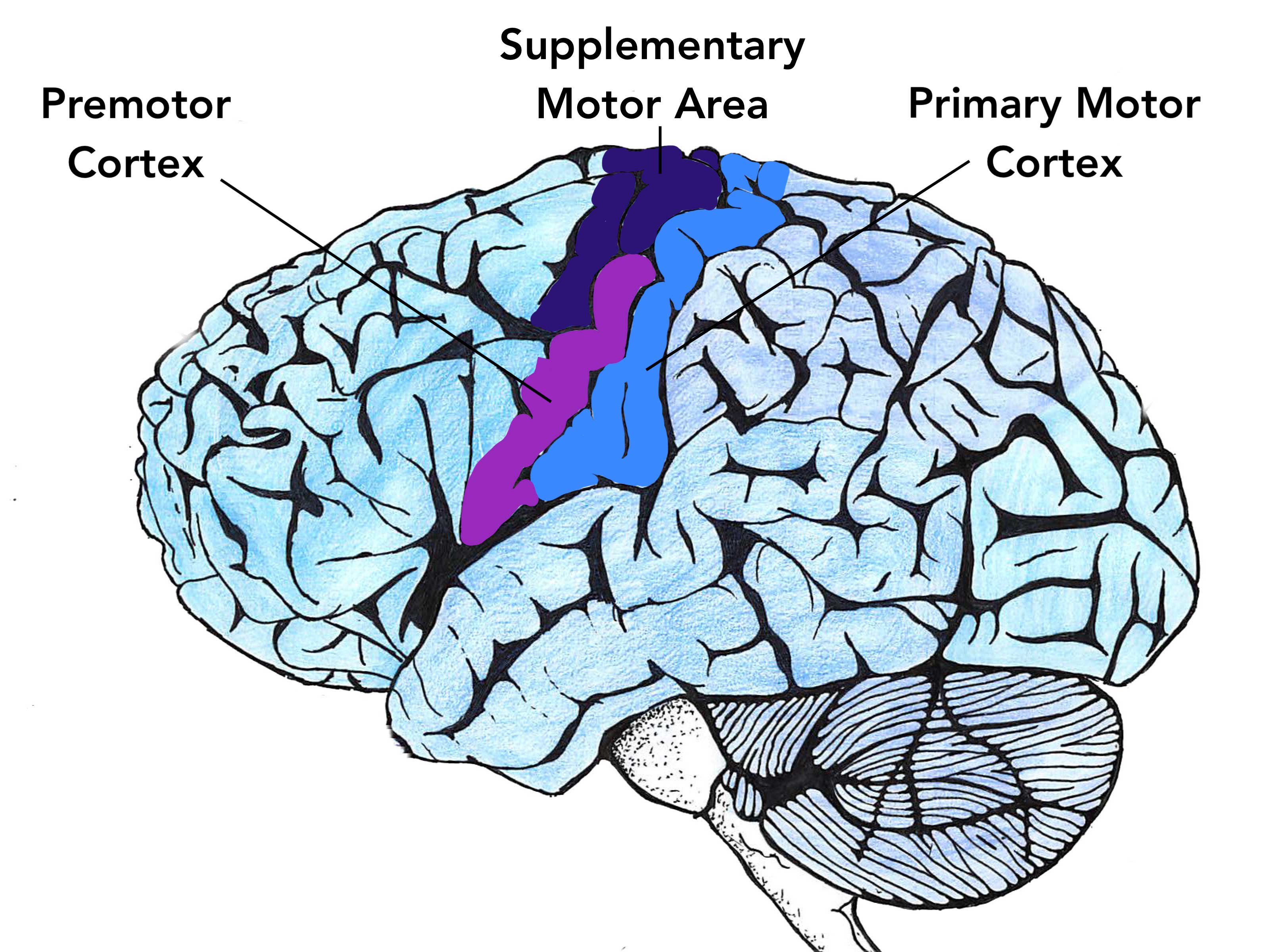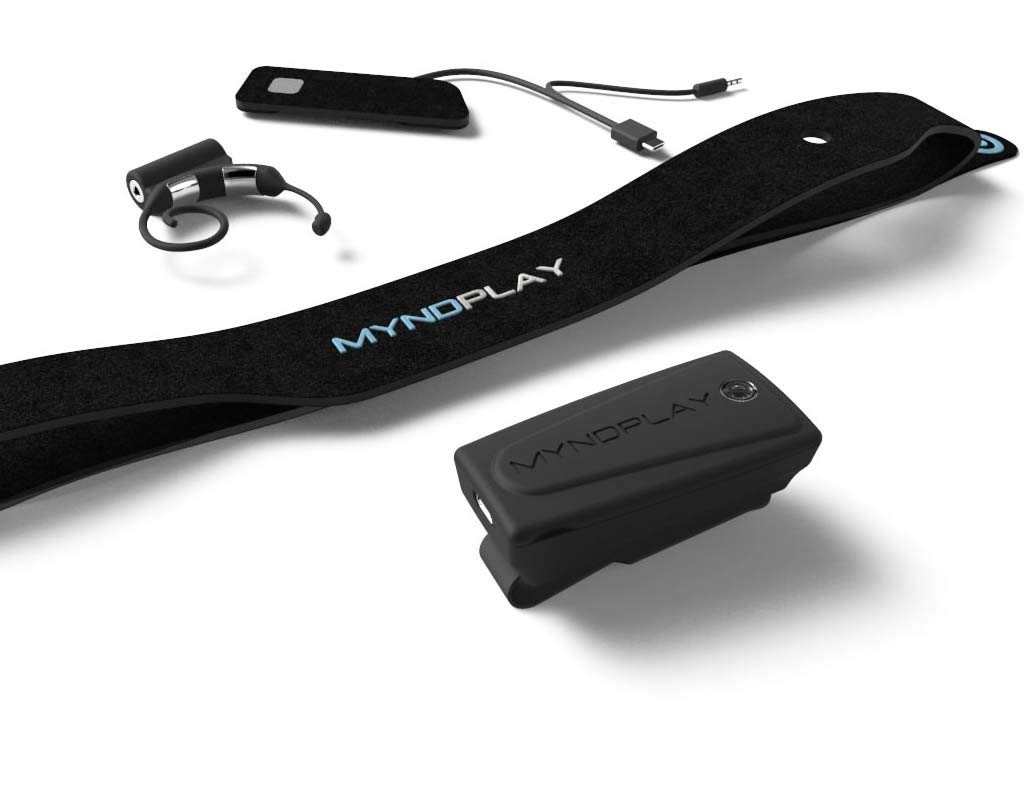Brain-computer interfaces could revolutionise the way we live | PC Gamer - ricedond2002
Brain-data processor interfaces could revolutionise the way we loaded

Technical school Report

This clause first appeared in PC Gamer magazine yield 532 in January 2021, as part of our 'Tech Report' serial publication. Monthly we research and explicate the stylish technological advances in computer science—from the wonderful to the truly weird—with help from the scientists, researchers, and engineers making information technology all happen.
A lot of sci-fi ideas look to have their roots in the '70s. We don't have sex whether IT's the availability of mind-deflexion drugs at the clock, or the free love, or the fashions, but something seems to suffer sparked off a cargo of ideas that still look modern today.
Uncomparable of those ideas is the brain/computer interface (BCI), which you kind of gestate Elon Musk to talk about in the same way he might discuss hollowing out a vent, but stay up and contain comment when Valve starts talking virtually it besides. Search into them began in the '70s, and earlier this year the UK Government received a report into them from the Parliamentary Office of Science and Applied science, in which it was expressed that amusement companies are developing non-invasive BCIs "to play computer games". This no doubt made few honourable members wonder what a 'computer game' was, but the adjacent judgment of conviction is eve major: these products are currently being offered to consumers.
Non-offensive BCIs, which use sensors worn on the skull, are a Earth away from the invasive type Musk is implanting in the skulls of pigs, which atomic number 2 describes as "kind of like a Fitbit in your skull with tiny wires". We'ray not sure we'd lack that, but for anyone who's suffered a disconnection between their psyche and the rest of their body, perhaps as a result of an accident, an implant may be able to reconnect the nerve signals.

Take the case of two subjects in a Holocene epoch Defense Advanced Research Projects Agency-supported clinical trial carried out by the University of Melbourne, Australia. Some suffer from upper-limb paralysis thanks to ALS, also known as motor neurone disease, they were fitted with midget wires that picked dormie physical phenomenon signals from the troubled system, and passed the results to a computer. This was able to distinguish 'tween the antithetic types of signals received when the subjects thought about different things, and these were mapped to various computer commands, including moving the mouse on an unmodified Windows 10 PC. Aside adding an optic-tracker, they were able to send messages, order online shopping, and use internet banking. They were then allowed to take the interfaces home, and achieved snap-excerpt accuracy rates of over 92 percent. Sadly, there was no refer of whether they used this spick-and-span ability to play StarCraft 2.
The surgery required for the interfaces is delineate As 'minimally invasive' by the study's authors, but lul means wires in your brain—specifically the superior sagittal fistula adjacent to the primary Rolando's area—inserted through veins using a tiny expansible tube called a stent. This is credibly what Musk's hog has gone through overly—although the South African-born billionaire suffered a shock in September when a survey recommended 90 percent of people wouldn't use one, with 32 percent worried it could be used for spying. The review, carried out past OnBuy.com, was hardly scientifically stringent, and Musk can require console in the 73 percent of respondents who claimed to be excited by the applied science.
His firm, Neuralink, states its initial goals are similar to the Melbourne trial: to help people with paralysis to find Independence through the control of computers and movable devices. Neuralink hopes to connect directly to thousands of neurons in the brainiac, sending the info to a computer where it's processed and initially wont to manipulate a sneak away. This leave be expanded, Eastern Samoa the recipient becomes more good and the algorithms more tightly focused, to a keyboard, speech synthesis and—yes—a game controller.
Just because you'rhenium controlling a controller with your intellect doesn't mean you'll be playacting Doom Eternal whol day, naturally; they have other applications, perhaps tied into the control system of a motorised wheelchair. Simply it does open the door to brainiac-controlled play. Neuralink says it hopes to 'discover' non-medical uses for the technology.

Take care control
Dominant games with your brain isn't new. In 2010 a adult male was fit to use an EEG (electroencephalogram) brain- scanning helmet known as the Berlin Brain-Computer User interface to play pinball game (an Addams Family-themed shelve, for fans of spooky disembodied drift) at the CeBIT technology fair in Hanover, Germany. British company MyndPlay will sell you its MyndBand EEG headband, with trio sensors that fit over your forehead, for £200, and there's an SDK for you to create something to use it with. Actual Personal computer software seems a little sparse, however, with a mind-controlled media instrumentalist, a rugby ball-kick app and various quizzes the main events. There are also apps to train your brain, devising yourself calmer, treating self-dubiousness, dealings with feelings of anger or guilt, and ones to help you muse, rewarding you for entering a relaxed psychological state.
Information technology seems neural interfaces are here, and in the case of MyndPlay actually utility, merely we're not quite sure what to do with them. The Britain Government written report mentions their use in therapy, also As applications for marketing—gaining insights into consumer decisiveness-fashioning direct from the brain—and defensive structure. At that place are also honorable considerations to be taken into account when sportfishing data directly from the sustenance surface of our brains, and an ethical framework was published by the Nuffield Council along Bioethics in 2013, which hatful with the effects the withdrawal of beneficial products may wear their former drug user, among other things, and that non-cure devices must make up regulated because they are likely to atomic number 4 used in private and without medical supervision. It suggested the European Commission regulate BCIs as medical checkup devices no matter what their well-meaning use.
When they break through and through to the mainstream, however, information technology remains to be seen if BCIs will be tempered wish Wi-Fi kettles—an amusing but largely unnecessary merchandise with its roots in helping the disabled—or like VR, a more serious product that will continue to gain adhesive friction Eastern Samoa the initial high schoo prices occur down. We wouldn't look against the latter.
Source: https://www.pcgamer.com/brain-computer-interfaces-could-revolutionise-the-way-we-live/
Posted by: ricedond2002.blogspot.com


0 Response to "Brain-computer interfaces could revolutionise the way we live | PC Gamer - ricedond2002"
Post a Comment